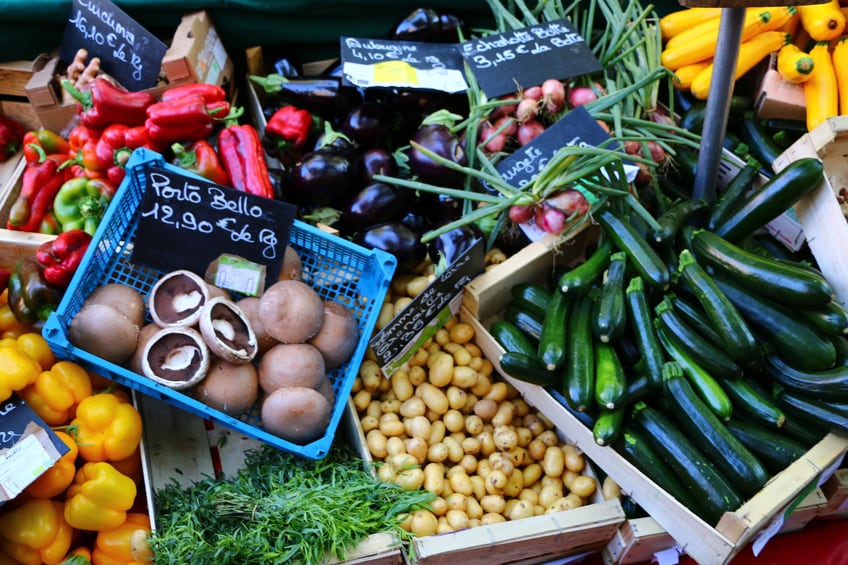The food system has adapted and developed to meet the demand for high-quality, safe and affordable products in Europe. Today, we produce, eat and waste more food than ever before. And this is placing population health, future food security and the environment at risk.
Future-proofing food production to support the emergence of a sustainable food system will require a significant shift in how food is produced, distributed and consumed.
According to a new report from UK-based insight and training provider IGD, the ‘real opportunity’
comes from changing diets. “If we empower and enable consumers, they will help drive change that is required.”
The scale of this change could be ‘phenomenal’, with 66% of people in the UK stating that they are open to making changes to what they eat and drink.
Hannah Pearse, head of nutrition and scientific affairs at IGD, believes this opportunity is the result of various factors coalescing to support change. And, she continued, it has gained widespread support from regulators and the scientific community to high-profile campaigners and celebrities.
“There is a growing body of opinion that the way we eat should change to protect both our health and the future security of the planet,” she told FoodNavigator.
“Healthy, sustainable and affordable food is at the heart of government thinking as work progresses on the National Food Strategy, which is the first independent review of our food system for 75 years and will now take into account the new challenges presented by the coronavirus (COVID-19) pandemic.
“However, awareness is not just coming from scientific communities. Many high-profile campaigners like Greta Thunberg and other celebrities are pushing healthy and sustainable diets up the public agenda. And wildfires in the Amazon caused by agricultural practices have featured heavily in the media across the UK.”
But while environmental causes might be getting a significant amount of time on the airways, a more personal motivation is also significant. “Health is the biggest motivator for consumers to change their diets and is especially important among older consumers (aged 45-54) and higher socioeconomic groups (ABC1s). The environment can provide a supporting reason to change, especially for younger women aged 18-24 and those who eat more plant-based diets,” Pearse detailed.
Simple solutions have most appeal
Conducting its research, IGD used reaction time testing to help explain the strength of association with various solutions. The faster the reaction time, the more accessible the attitude from memory and therefore the stronger the association.
This enabled the researchers to understand the attractiveness of various solutions that promote healthier and more sustainable eating.
“We found that people give easy solutions the most consideration,” Pearse noted. “For example, 65% would consider adopting meat-free Monday, 60% would consider using blended meat products (such as a meat mince with added lentils and carrot) and there was general support for plant based alternatives to be placed in the appropriate meat or dairy aisles.”
While people were open to these small-scale changes, they were more resistant to ‘dramatic lifestyle changes’ like going vegan or even trying out Veganuary. This actually serves to put consumers off products that are labelled vegan, Pearse observed.
“Despite the UK now being the world leader for vegan food launches, our consumer groups ‘considering change’ and ‘resisting change’ are unlikely to try a product labelled vegan because they don’t find it personally relevant and assume it will have poor taste. Therefore, companies should carefully consider their target audience before positioning their products,” she advised.

There is also an opportunity to shift the balance of consumer diets towards increasing their intake of plant-rich foods more broadly. A focus on positive plant-based attributes – rather than the connotation that something is being taken away – could help. “Some 86% consumers are thinking about or are already actively increasing their fruit and vegetable intake and 62% are increasing or thinking about increasing how much plant-based food and other proteins, like beans and pulses, they eat.”
Cost concerns persist
If IGD’s research suggests that there is a ‘significant’ appetite for moving to healthier and more sustainable diets, it also highlights one of the key barriers to consumer uptake – cost perception.
The study found 41% of people perceive healthy and sustainable eating to be more expensive, making it the primary barrier. But, Pearse stressed, many consumers are already looking at how to make changes without loosening their purse strings.
“We know that perceived cost is a significant barrier for people in adopting healthy and sustainable diets... But we also spoke to people who had actively made changes to their diets, using cost effective ingredients, for example by adding more vegetables, beans, and pulses to their favourite dishes,” she told us.
And the industry is playing its part to overcome negative views around the cost of eating sustainably. “Initiatives have been introduced across the food and consumer goods industry with retailers offering price incentives to encourage the purchase of healthier products. Furthermore, behaviour science shows that how choices are presented affect the purchases we make. If the industry continues to make it easy for people to take the first step towards healthier products that will go a long way.”
What can industry do to support sustainable diets?
According to Pearse, food industry players can take a number of steps to encourage positive behaviour change towards healthy and sustainable diets.
“The success of the solutions will vary depending on the mindset of consumers, so targeted and personalised interventions are likely to be more effective and have a greater impact,” she suggested.

“For those consumers already making changes, make it easy for them to maintain. Help them to find solutions that fit with a busy lifestyle, especially when eating out. This will help sustain change. Our shopper research suggests that 31% of people [prior to lockdown] would eat out more regularly if more healthy options were available.”
The ‘biggest opportunity’ is presented by consumers on the cusp of taking action. “This group can be encouraged to make change by ‘interrupting’ them, for example placing plant-based milk next to dairy in store. However, this group can also be easily put off and so making it very obvious that a product is vegan might have a detrimental effect as these labels suggest the product is ‘not for me’ and may be perceived as having a poor taste.”
What about the 34% of consumers who said they either haven’t considered or wouldn’t consider changing the way they eat? “For those not considering change, or resisting change, using nudge tactics helps to prompt the easy first steps. The switch to healthy and sustainable products has to seem easy, affordable and low effort. This can be done by reflecting on product, placement and price.”
Innovation to ‘motivate and intrigue’
If price and availability are two parts of the healthy and sustainable food picture, innovation is the third.
“Creating new products, that are healthy and sustainable will help to motivate and intrigue people. Innovation in this space has been huge, but it now needs to feel mainstream and affordable, supporting consumers both in and out of home,” Pearse believes.
“For example, new product development (NPD) of plant-based products is thriving, and in 2018 the UK launched more vegan food products than any other country. January 2020 saw even more NPD, with new, plant-based ranges launched by Sainsbury’s, Wagamama and KFC to name just a few. With such huge demand there’s a significant business opportunity to create new and innovative food and drink products appealing to these consumer groups.”




